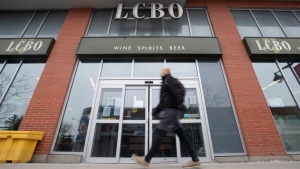Spirits Companies Threaten to Withdraw Products from LCBO Amid Pricing Dispute
The Liquor Control Board of Ontario (LCBO) is facing a potential crisis as several spirits companies have threatened to pull their products from the retailer’s shelves. This comes after a dispute over pricing between the LCBO and the companies, which has been ongoing for several months.
According to sources close to the matter, the dispute stems from the LCBO’s decision to increase the markup on spirits by 2%. This move has been met with strong opposition from the spirits companies, who argue that it will significantly impact their profit margins and ultimately lead to higher prices for consumers.
In response to the LCBO’s decision, the spirits companies have warned that they may be forced to withdraw their products from the retailer’s stores. This would have a significant impact on the LCBO’s revenue, as spirits make up a large portion of their sales.
The LCBO, on the other hand, maintains that the markup increase is necessary to cover rising costs and maintain their profitability. They also argue that the increase is in line with the pricing strategies of other provincial liquor boards.
However, the spirits companies are not convinced and have called for a meeting with the LCBO to discuss the issue further. They are also considering taking legal action if the markup increase is not reversed.
This dispute has raised concerns among consumers, who fear that they may soon have to pay more for their favorite spirits. It has also sparked a debate about the LCBO’s monopoly on alcohol sales in Ontario and whether it is time for the province to consider privatization.
In the meantime, the LCBO and the spirits companies continue to negotiate in an attempt to find a resolution. However, if an agreement cannot be reached, consumers may soon see a shortage of their preferred spirits on LCBO shelves.
The outcome of this dispute remains uncertain, but one thing is clear – the potential withdrawal of products from the LCBO by spirits companies could have a significant impact on the province’s liquor industry.




